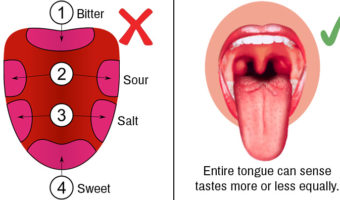The Truth Behind High Fructose Corn Syrup According To Science.

There has been a lot of debate by current media on whether High Fructose Corn Syrup (HFCS) is beneficial or harmful to our health. They however are missing the point since the average American has increased HFCS consumption (taken mostly from processed foods and sweetened drinks), from zero to around 60 pounds per person yearly. Within this period of time, obesity rates have tripled while diabetes incidences have increased to more than sevenfold. HFCS may not be the only cause, but we can’t ignore it.
Numerous advertising campaigns have been done by the Corns Refiners Association while they attempt earnestly to dispel the idea that HFCS is harmful. Through opinions by “medical and nutritional experts” they claim that it’s no different from cane sugar. It’s a “natural” product and that if used moderately; it’s a healthy part of our diet. The only problem is that it’s a major cause of obesity, heart disease, dementia, cancer, tooth decay, liver failure and more.
So, what does science say about HFCS?
1 Sugar in whatever form does cause obesity and diseases when consumed in pharmacological doses.Â
Corn syrup and HFCS are harmful if consumed by a person in pharmacologic doses of 140 pounds per year. You find 17 teaspoonfuls of sugar in 20 ounces HFCS sweetened sports drink, soda or tea and an average teenager will take two drinks in a day. Our ancestors were much healthier since they took on average 20 teaspoons of sugar per year and yes, according to the corn industry, sugar is sugar and quantity matters but some differences do exist.
2 Cane Sugar and HFCS are not biochemically identical and the body processes both in different ways.
HFCS is not a naturally occurring product but an industrial food product. A chemical enzymatic process extracts it from corn stalks and this results in the chemically and biologically compound that is HFCS. Regular cane sugar (sucrose) has two sugar molecules that are bound together- fructose and glucose in equal measure. Enzymes in the digestive tract break down sucrose into fructose and glucose, which the body then absorbs. HFCS also has glucose and fructose but in a 55-45 ratio and in an unbound form.
Since no bond exists between these two, digestion is not required and they absorb rapidly into the blood stream. Fructose will go to the liver and this will trigger lipogenesis (production of fats like cholesterol and triglycerides), a major liver damage cause. It leads to a condition known as “fatty liver”. When glucose is absorbed rapidly, it triggers a big spike in insulin- a major fat storage hormone. These two features of HFCS eventually lead to heightened metabolic disturbances that increase appetite, lead to weight gain, heart diseases, diabetes, dementia, cancer and more.
Free fructose in high doses literary punches holes in the intestinal lining and allows nasty byproducts of toxic gut bacteria and proteins from partially digested foods to enter the blood stream. This triggers inflammation that is the root of diabetes, obesity, dementia heart disease, cancer, and accelerated aging. When fructose occurs naturally, for example in fruits, the same biological effects are not seen. The bottom line is; cane sugar and “corn sugar” (industry produced) are not physiologically or biochemically the same.
3 HFCS has contaminants like mercury not measured or regulated by the FDA.
A study conducted by an FDA researcher showed that HFCS contains toxic levels of mercury due to chlor-alkali products that are used during manufacture. When you run HFCS through a chromatograph or chemical analyzer, strange chemical peaks can be seen that are neither fructose nor glucose. The purity of the processed sugar is questionable since the exact effects, nature or toxicity of these compounds isn’t known.
4 Independent medical and nutritional experts don’t support use of HFCS despite assertions by the corn industry that they do.
www.cornsugar.com and www.sweetsurprise.com reinforce their position that corn sugar and cane sugar are similar by quoting (or misquoting) experts. Barry M. Popkin, Ph.D., Professor, in the Department of Nutrition at University of North Carolina, Chapel Hill, has published on dangers caused by taking sugar-sweetened tea and how it contributes to the obesity epidemic. He reviewed HFCS in the American Journal of Clinical Nutrition and explained how free fructose contributes to obesity.
“The digestion, absorption, and metabolism of fructose differ from those of glucose. Hepatic metabolism of fructose favors de novo lipogenesis (production of fat in the liver). In addition, unlike glucose, fructose does not stimulate insulin secretion or enhance leptin production. Because insulin and leptin act as key afferent signals in the regulation of food intake and body weight (to control appetite), this suggests that dietary fructose may contribute to increased energy intake and weight gain. Furthermore, calorically sweetened beverages may enhance caloric over-consumption. … the increase in consumption of HFCS has a temporal relation to the epidemic of obesity, and the overconsumption of HFCS in calorically sweetened beverages may play a role in the epidemic of obesity.”
The corn industry put this out of context saying “All sugar you eat is the same.”
If you ask most of these experts why they support the corn industry, they will state that their comments were taken out of context. It’s just not right to misrepresent scientists who have fought against obesity and HFCS sweetened beverages.
5 HFCS products are of poor quality, nutritionally depleted and full of artificial ingredients and empty calories.
If the label of a product you are buying states “high fructose corn syrup” be sure that it’s not a whole, real or fresh food that is full of fiber, minerals, vitamins, antioxidants and phytonutrients. Though we should overall reduce our sugar intake, we should still stay away from HFCS products.
Debate may range on the physiology and biochemistry of corn sugar versus cane sugar but the real issues here are only two:
1. Our consumption of fructose has increased from 140 pounds per year as compared to 20 teaspoons from ten thousand years ago.
2. HFCS is mostly found in poor quality foods that have a nutritional vacuum and filled with different sorts of disease promoting compounds, salt, fats, mercury and chemicals.
What do you think? Is there a relationship between the large intakes of HFCS in our diets to the obesity epidemic? Does the science presented above convince you on the general effects of HFCS?
[Source: www.drhyman.com/ , www.dummies.com]
























